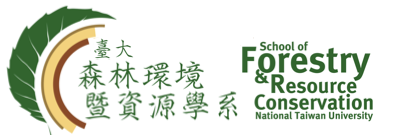| 年度 | 2015 |
|---|---|
| 計畫類別 | 研究計畫 |
| 計畫名稱 | 植物多樣性快速評估取樣法之研發 |
| 參與人 | 關秉宗 |
| 職稱/擔任之工作 | 計劃主持人 |
| 計畫期間 | 2015.02 ~ 2016.07 |
| 補助/委託或合作機構 | 科技部 |
| 摘要 | It is generally accepted that biodiversity provides multifaceted benefits to human society, but our knowledge is still incomplete. Taiwan is a major biodiversity hotspot with more than four thousand plant species and a high level of endemism. Thus, understanding its biodiversity composition and function helps conserving this precious resource. Biodiversity inventories collect information for decision making in conservation and management; however, they are costly to implement. Rapid Biodiversity Assessment (RBA) method is developed to overcome this challenge. Thus, the overarching goal of this project is development of sampling designs that are efficient in rapid assessment of vascular plant diversity across forest types. An efficient design is one that reflects ground vegetation structures and maximizes species obtained per unit effort. This project has three specific objectives. Comparative studies of common sampling designs such as fixed area plot and angle count in sampling biodiversity has not been progressive in many forest types. Thus, the first objective is comparing efficiency of these sampling designs in assessing biodiversity in a forest area. Expert and local knowledge is increasingly recognized to benefit biodiversity surveys. Two sampling designs that particularly incorporate expert knowledge are Timed Meandered Search procedure (TMS) and Probability Proportional to Prediction (3P) sampling. The second objective is modifying the TMS to account for its sampling issues such as non-probabilistic design. The third objective is adapting 3P sampling, which have traditionally been used in timber assessment, for assessing plant diversity. This project is implemented in three stages over three years. The first stage in the first year is comparative computer simulation study of 288 combinations of plot design, sampling design and sample size. The data used in the simulation are from three 25 to 50 ha census plots in Taiwan, Panama and Malaysia. All trees in the plots with diameter ≥ 1 cm were measured and mapped. The simulation study identifies sampling designs that are efficient in collecting biodiversity information in tropical and temperate forests. The field assessment in the second year incorporates results from the simulation but focuses on field implementation of TMS and 3P sampling. The assessment is planned at the National Taiwan University Experimental Forest in three forest types of different elevations: Ficus-Machilus, Quercus and Tsuga-Picea forests. The field study complements the simulation study in achieving holistic understanding of the developed RBA methods. The third year integrates all effort into a core product, the Forest Inventory Simulator (FIS) software. FIS is a platform for academic research, education and industrial application. It will be an open source software with a friendly graphical user interface and will be hosted on a cloud service. This project contributes significantly to different forest regions in the world and wide ranging sectors. In Taiwan, the developed RBA methods can assist formulation of country wide conservation policy. They can advance our understanding of biodiversity in tropical forests. Recently, multinational commodity companies are transforming their raw material sourcing policies towards sustainability. Thus, RBA methods can be used as standard tools for implementing their policies. |
| 語言 | 英文 |
登入 臺灣大學森林環境暨資源學系

